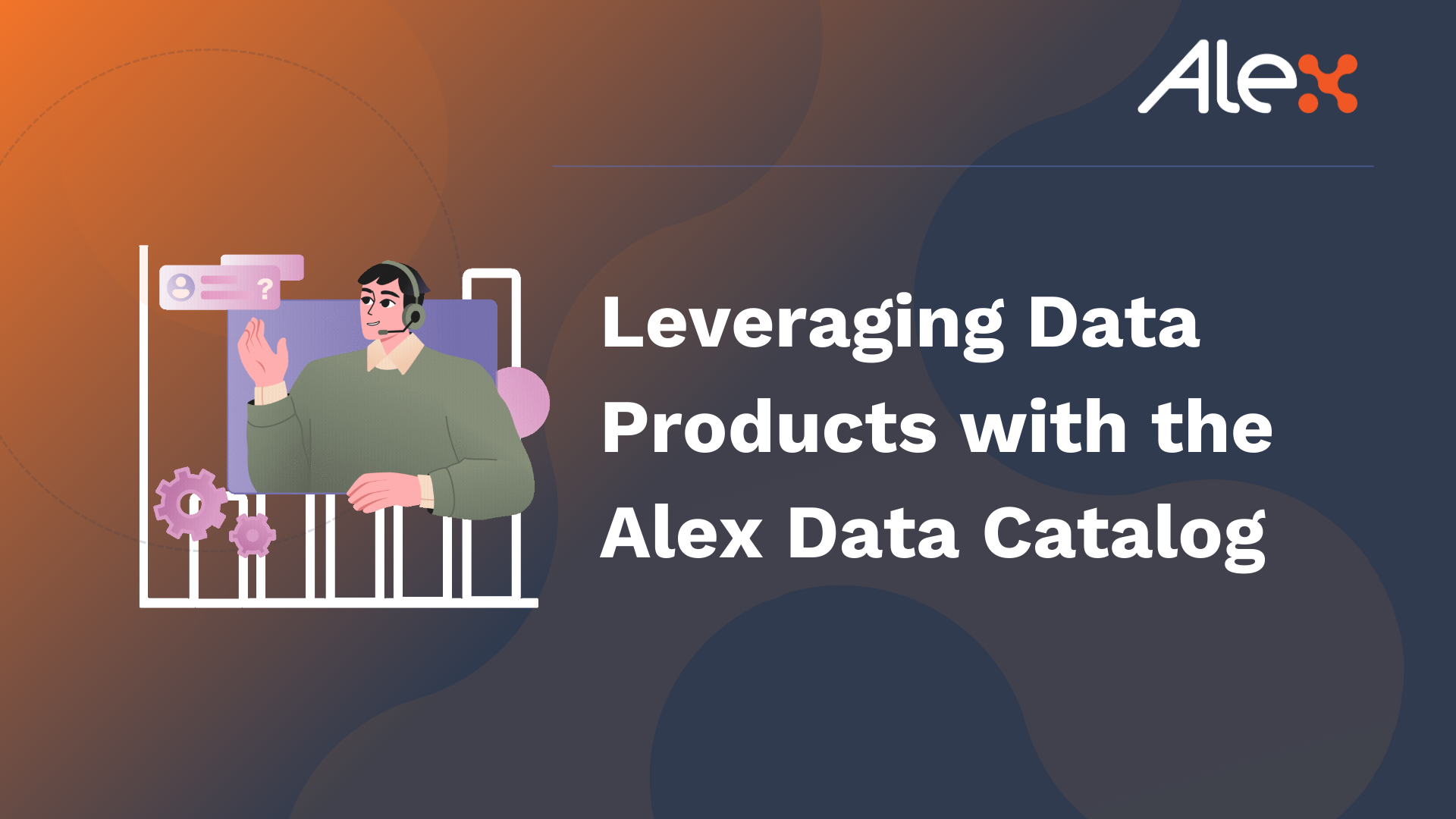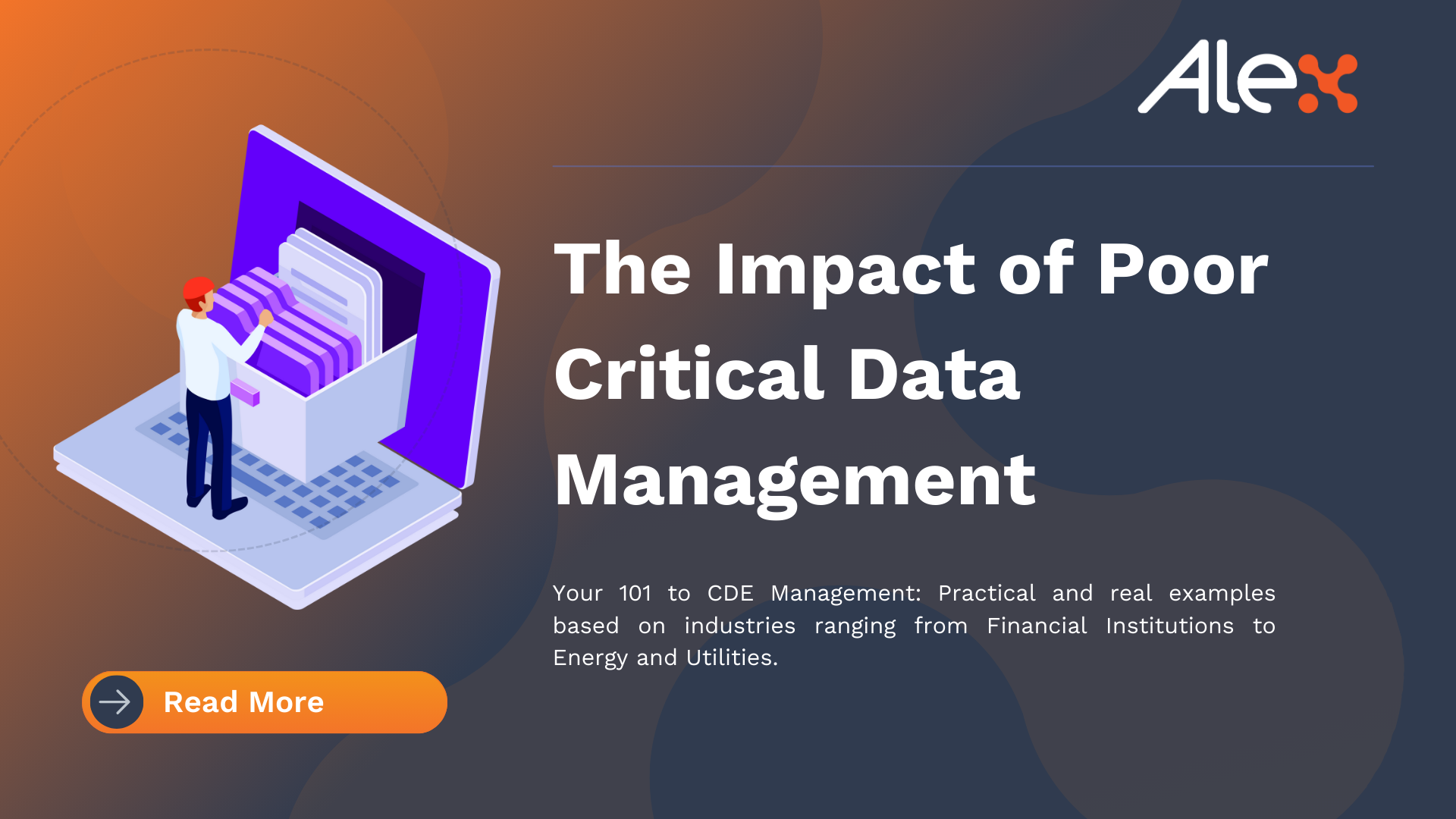Regulated industries that handle both consumer and product data face a myriad of challenges in maintaining data quality while complying with regulations and solving data quality problems. Data owners tasked with operational data use often grapple with fragmented data sources, privacy concerns, and integration complexities. On the other hand, risk and compliance teams must navigate evolving regulatory landscapes, ensuring data accuracy, and facilitating audit and reporting requirements. This article delves into the specific challenges faced by these industries and offers insights into how they can effectively manage data quality to meet regulatory standards and operational needs.
In industries like Financial Services, Healthcare, and Retail, where firms collect and use both customer and product data, ensuring data quality is paramount due to stringent regulations and tackle data quality problems. For example, in banking, accurate customer information is crucial for preventing fraud, ensuring compliance with regulations such as the Gramm-Leach-Bliley Act (GLBA) and the Payment Card Industry Data Security Standard (PCI DSS), and providing personalized services. Similarly, in healthcare, maintaining high-quality patient and product data is vital for delivering effective care, complying with privacy regulations like the Health Insurance Portability and Accountability Act (HIPAA), and conducting medical research. In retail, accurate product data is essential for inventory management, pricing, and compliance with regulations such as the General Data Protection Regulation (GDPR) and the California Consumer Privacy Act (CCPA). In these industries, the accuracy, completeness, and timeliness of data can directly impact customer trust, regulatory compliance, and business operations.
Data Quality Challenges for Data Owners
Data owners, responsible for the operational use of data, encounter significant data quality problems & challenges when managing both customer and product data while complying with regulations. A primary challenge is the diverse and voluminous nature of data sources. Customer data originates from various touch points like online transactions, customer service interactions, and social media, while product data includes specifications, pricing, and inventory details. Handling and integrating this varied data landscape to ensure accuracy and consistency pose substantial challenges for data owners, impacting decision-making and insights generation.
Data silos present another significant challenge for data owners. These silos, where data is isolated in different systems or departments, lead to duplication, inconsistency, and difficulties in accessing data across the organization. This fragmented data landscape hinders data owners’ ability to derive comprehensive insights and make informed decisions. Ensuring data security and privacy is also crucial, particularly with sensitive customer information. Data owners must implement robust security measures to protect data from unauthorized access, breaches, and compliance violations, reinforcing the importance of data quality management and tackle data quality problems.
Additionally, maintaining data quality over time is challenging due to data decay and evolving data formats and standards. Data owners must continuously monitor and update data to ensure its accuracy, completeness, and relevance, emphasizing the dynamic nature of data quality management. Furthermore, data owners face challenges in establishing data governance frameworks and complying with regulations like GDPR, CCPA, and HIPAA. This involves setting up data governance policies, ensuring data quality and security, and maintaining transparency and accountability in data management, highlighting the multifaceted nature of data quality problems & challenges for data owners.
Risk & Compliance Challenges of Poor Data Quality
Risk and compliance teams face distinct data quality problems when managing both customer and product data to meet regulatory requirements. A primary challenge is ensuring data accuracy and integrity for regulatory reporting. Regulatory bodies require accurate and reliable data for reporting purposes, making data quality essential for compliance. However, inconsistencies, errors, and incomplete data can lead to inaccurate reporting, regulatory scrutiny, and potential fines.
Data lineage is crucial for risk and compliance teams to trace the origin and movement of data. However, ensuring comprehensive data lineage can be challenging, especially in complex data environments with multiple data sources and systems. Without clear data lineage, risk and compliance teams may struggle to demonstrate data integrity and compliance, increasing the risk of regulatory non-compliance and associated penalties.
Data privacy is another critical concern for risk and compliance teams, particularly with the rise of data protection regulations like GDPR and CCPA. Ensuring data privacy requires implementing robust data protection measures, including encryption, access controls, and data masking. However, managing data privacy while maintaining and solving data quality problems can be complex, as data must be protected without compromising its accuracy and integrity.
Furthermore, risk and compliance teams must address data governance challenges, such as data ownership, data stewardship, and data access controls. Establishing clear data governance policies and procedures is essential for ensuring data quality and compliance. However, implementing and enforcing these policies across the organization can be challenging, especially in large and decentralized organizations.
Anyone at a regulated enterprise faces significant data quality problems when managing both customer and product data. These challenges require proactive data quality management strategies, including implementing robust data governance frameworks, ensuring comprehensive data lineage, and addressing data privacy concerns. By addressing these challenges, risk and compliance teams can ensure data integrity, regulatory compliance, and effective risk management.
Managing Data Efficiently
Instead of using multiple tools for data quality management, Alex Solutions offers a unified platform that integrates data quality, governance, and compliance functionalities. By consolidating data management efforts into a single platform, companies can streamline their data quality processes, reduce operational complexities, and ensure regulatory compliance.
The Alex platform provides a comprehensive suite of tools and features designed to address the data quality challenges faced by regulated companies dealing with consumer and product data. The platform offers advanced data profiling, cleansing, and monitoring capabilities, enabling organizations to ensure the accuracy, completeness, and reliability of their data. Additionally, Alex’s automated data classification and enrichment features help organizations categorize and enhance their data and solve data quality problems, making it more valuable for AI and analytics initiatives.
One of the key advantages of the Alex platform is its ability to integrate with existing data quality solutions. This means that companies can leverage their existing investments in data quality tools and processes, while also benefiting from the advanced capabilities offered by Alex. By integrating existing solutions into the unified Alex platform, companies can avoid the need for costly and disruptive migrations, while also ensuring that their data quality efforts are aligned with industry standards and best practices.




